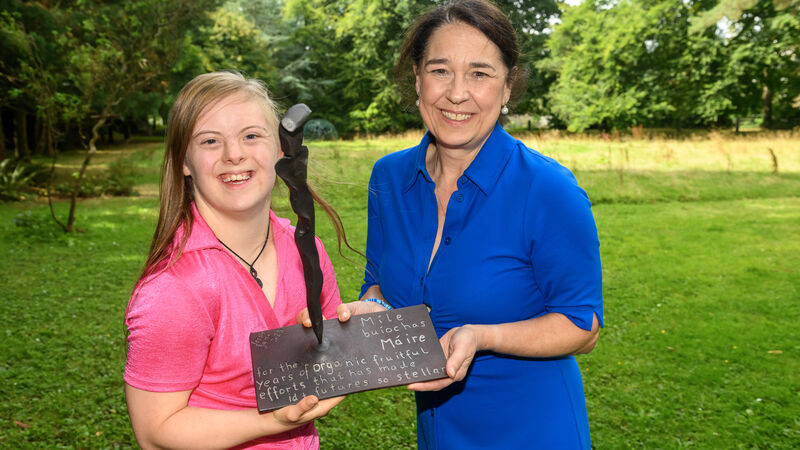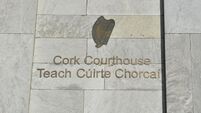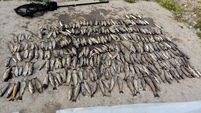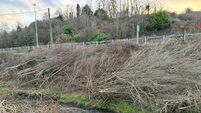First woman with Down syndrome to become blacksmith celebrates retired UCC professor with sculpture

Jessie Waschkowitz presenting the sculpture 'The Heart of a Scholar' to professor Máire Leane, head of the ID+ futures programme to mark her retirement from University College Cork. Picture: Dan Linehan
One of Ireland’s last remaining blacksmiths, Jessie Waschkowitz, did not just break the mould - she burned right through it by becoming Ireland’s first woman with Down syndrome to enter the profession.
The artist from Castletownbere was just 16 when she began an apprenticeship to follow in her father Reinhard’s footsteps.















